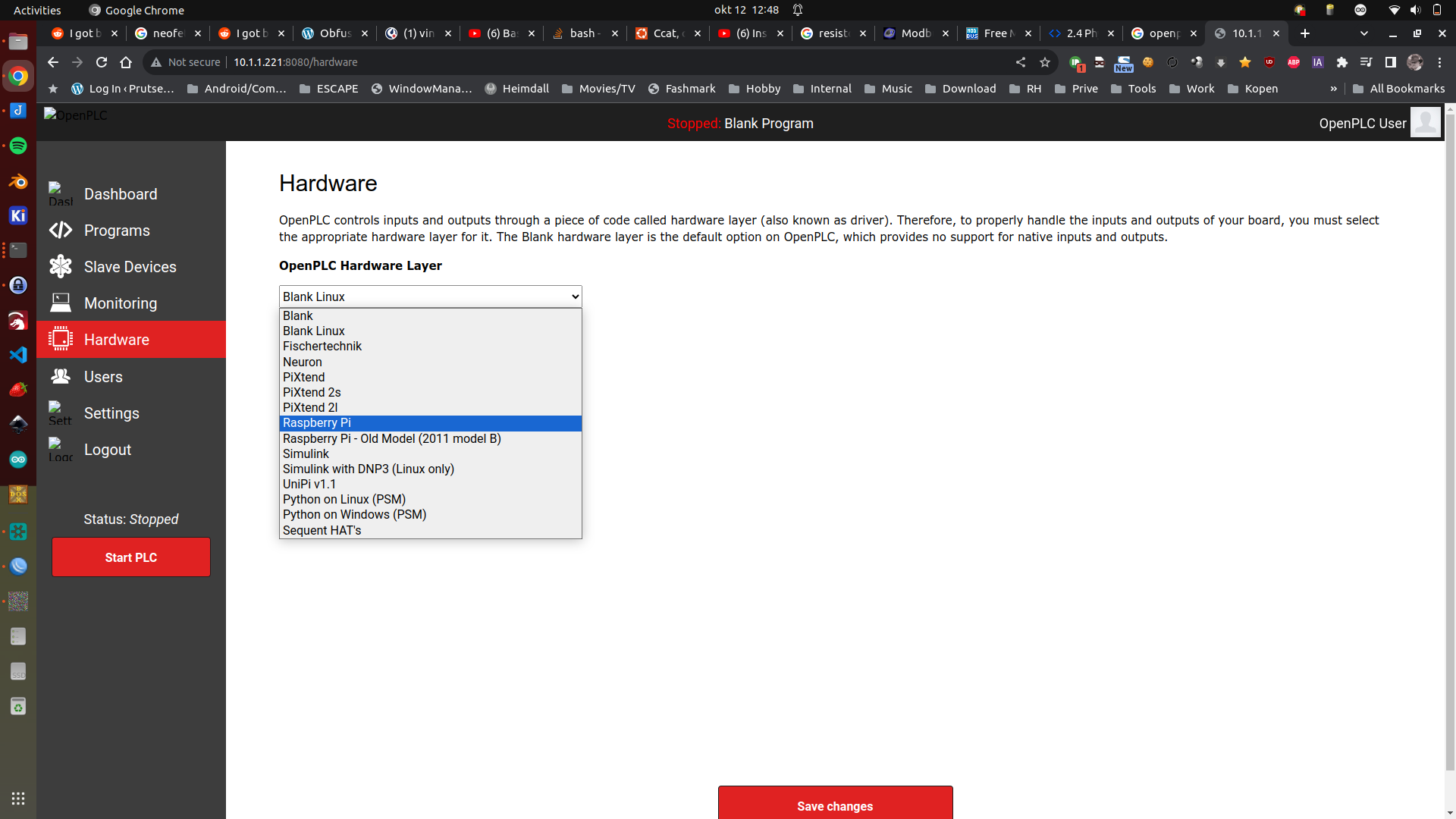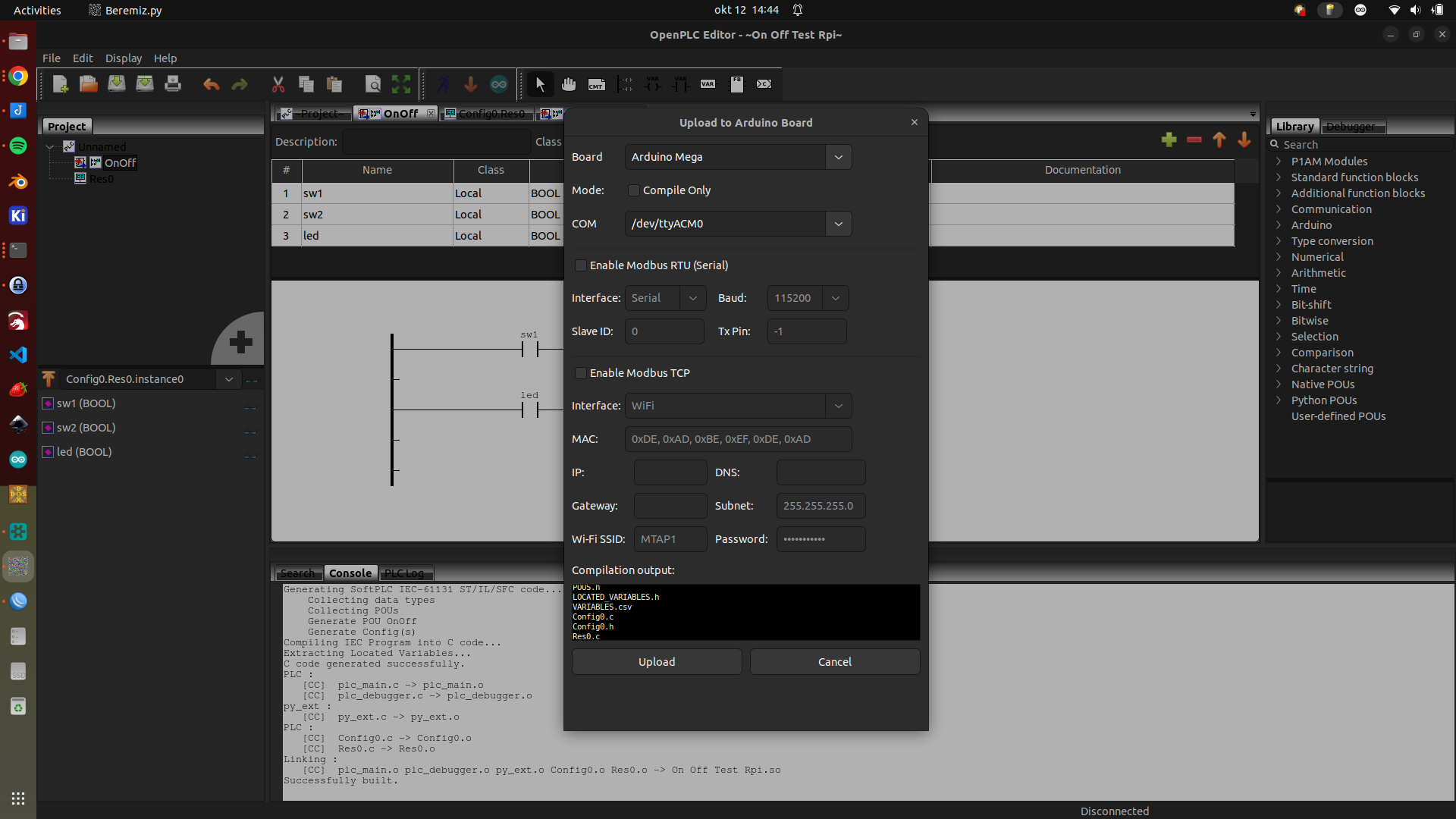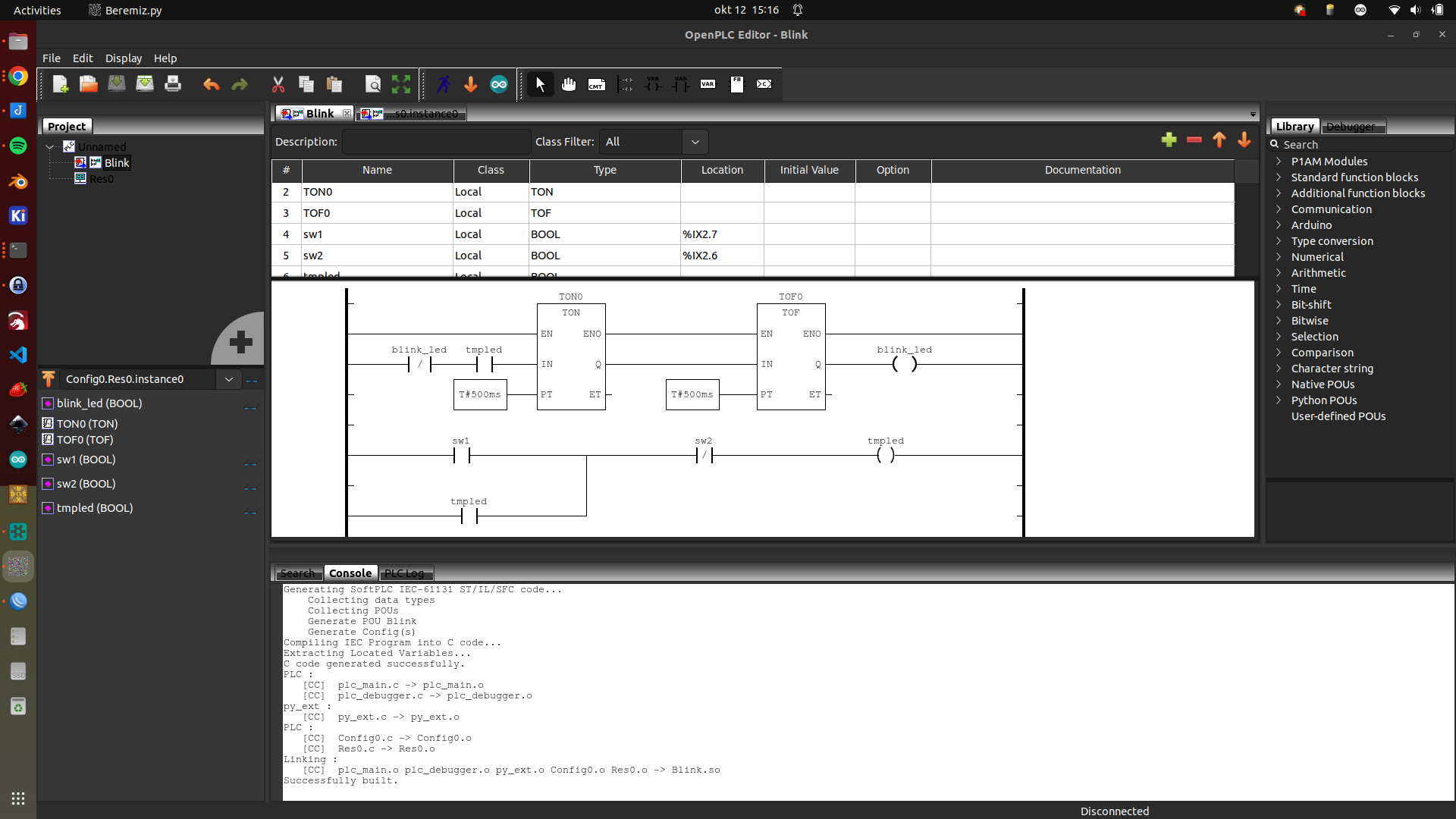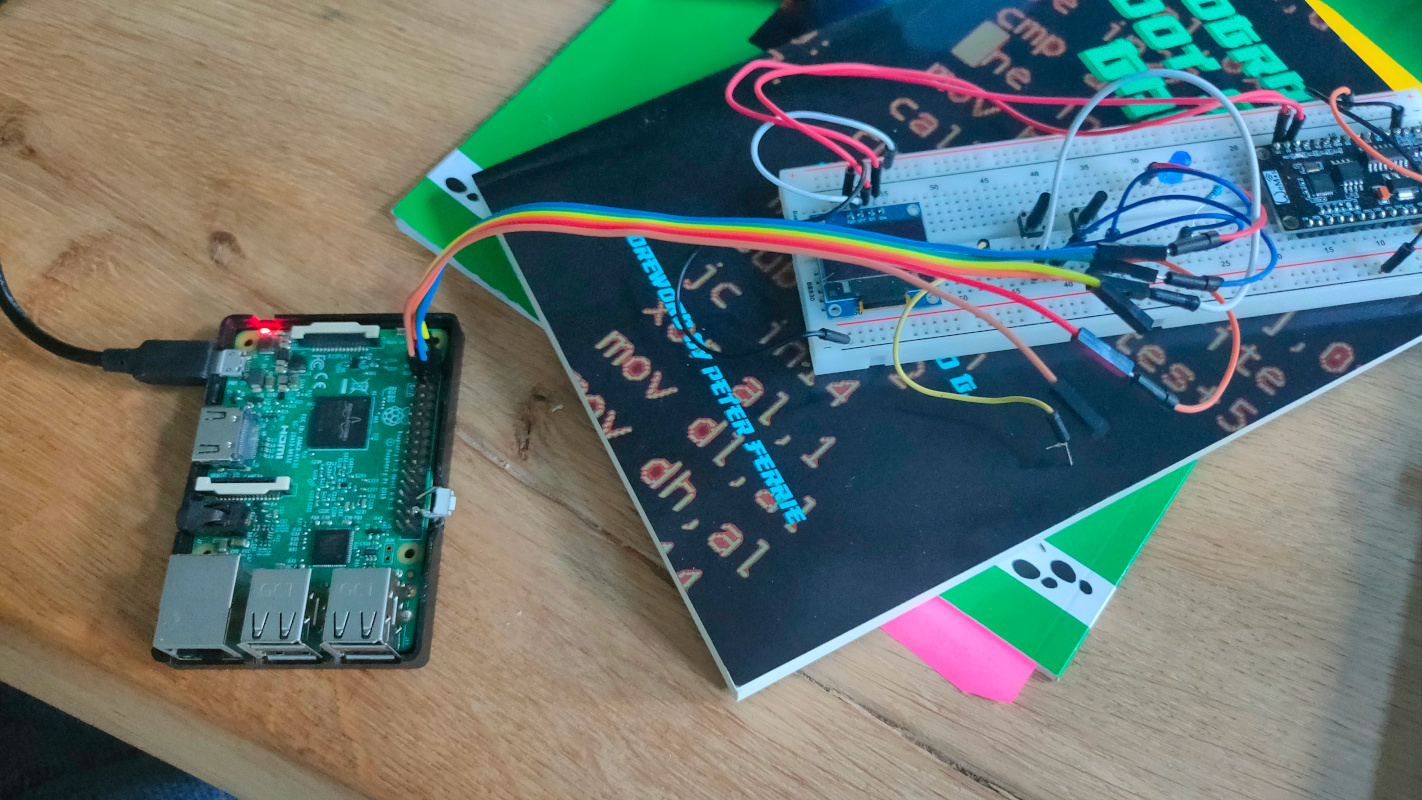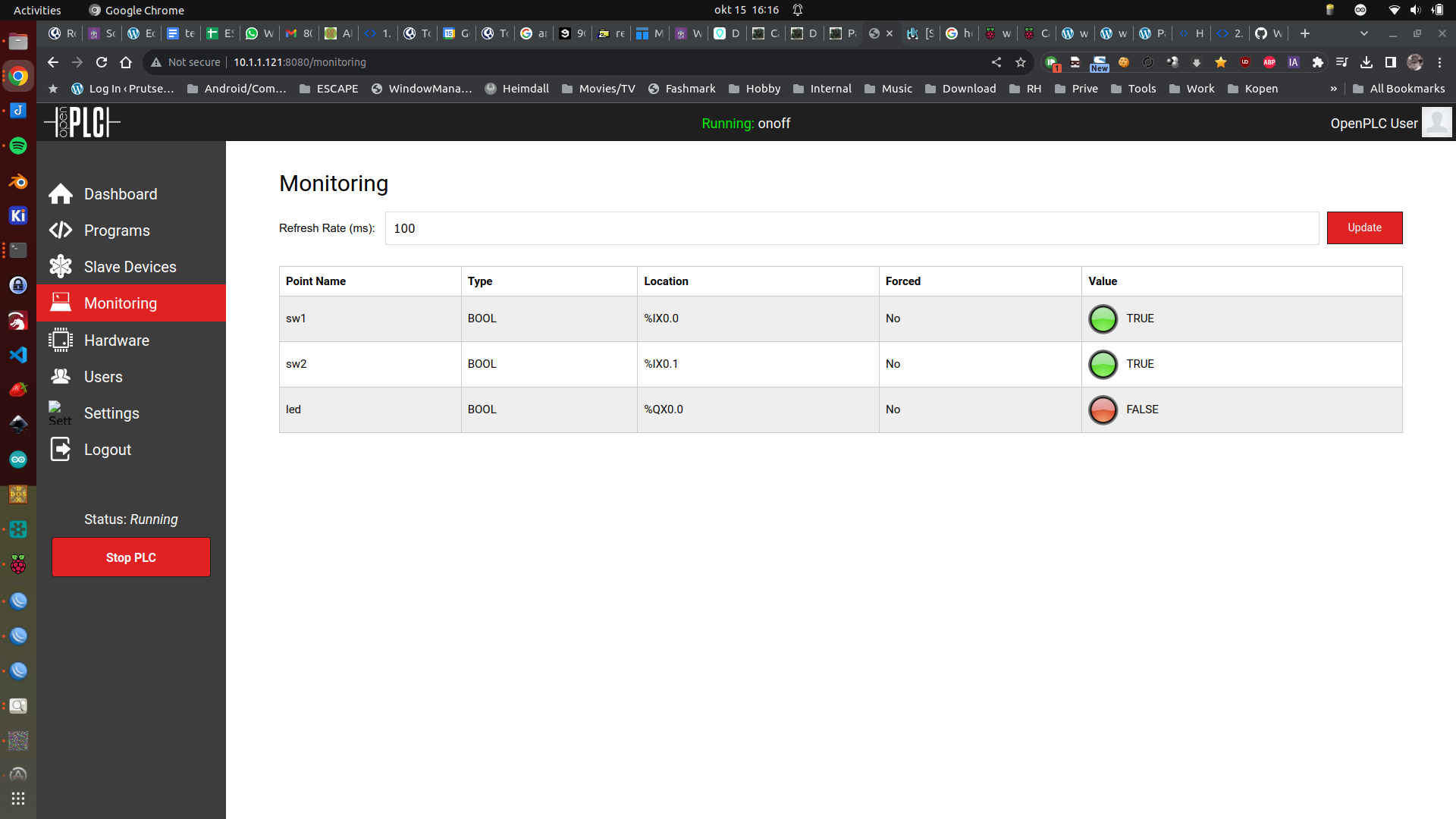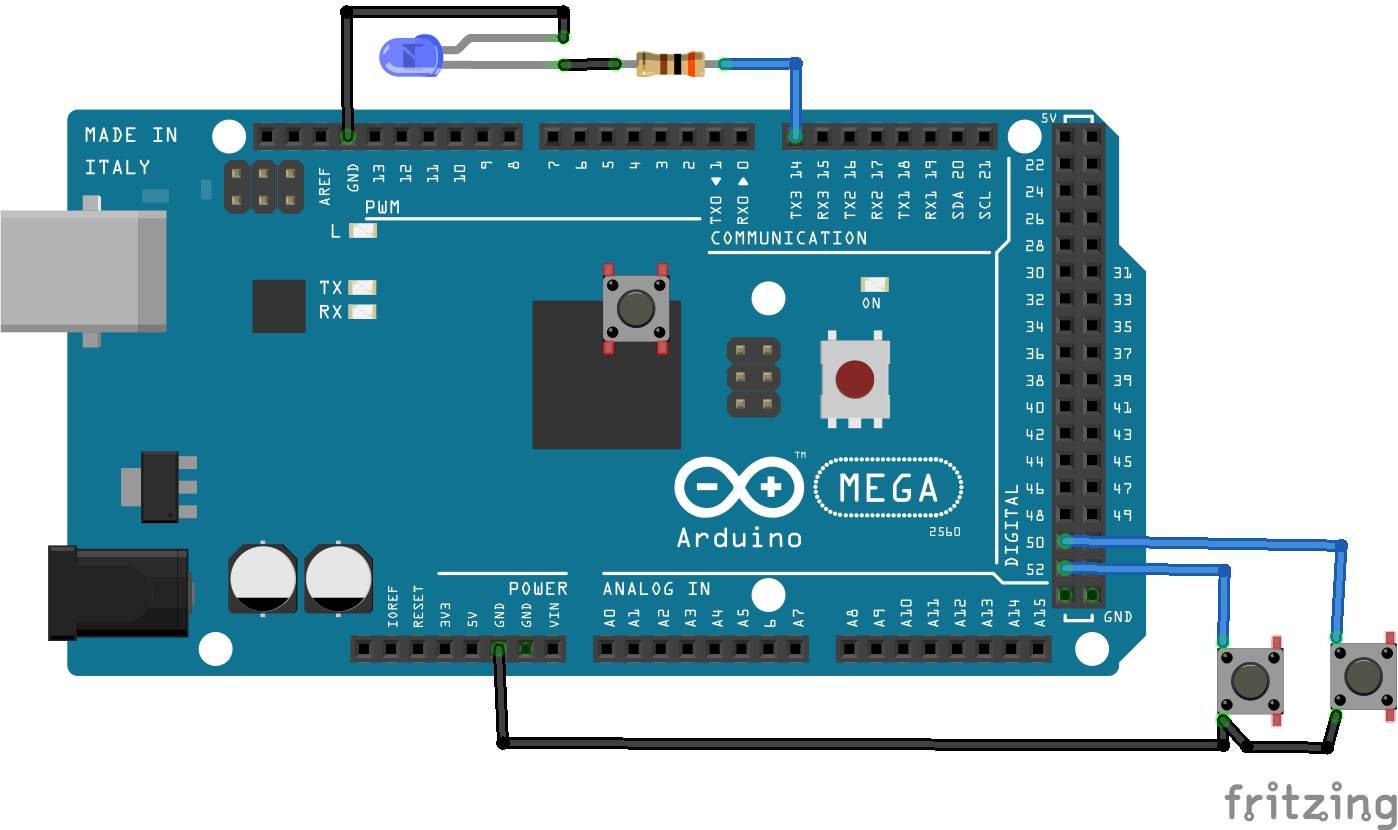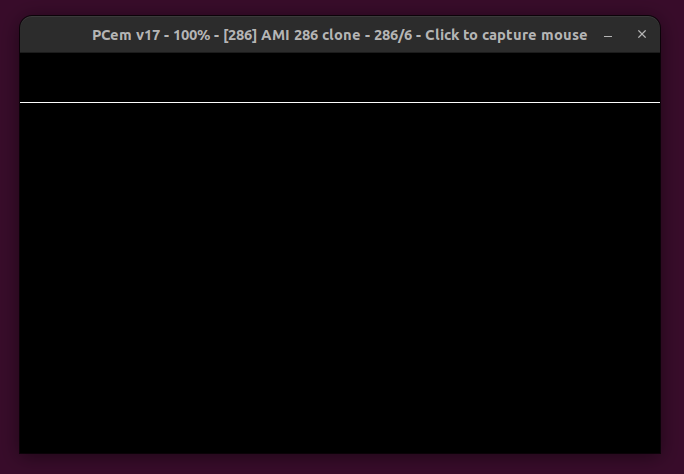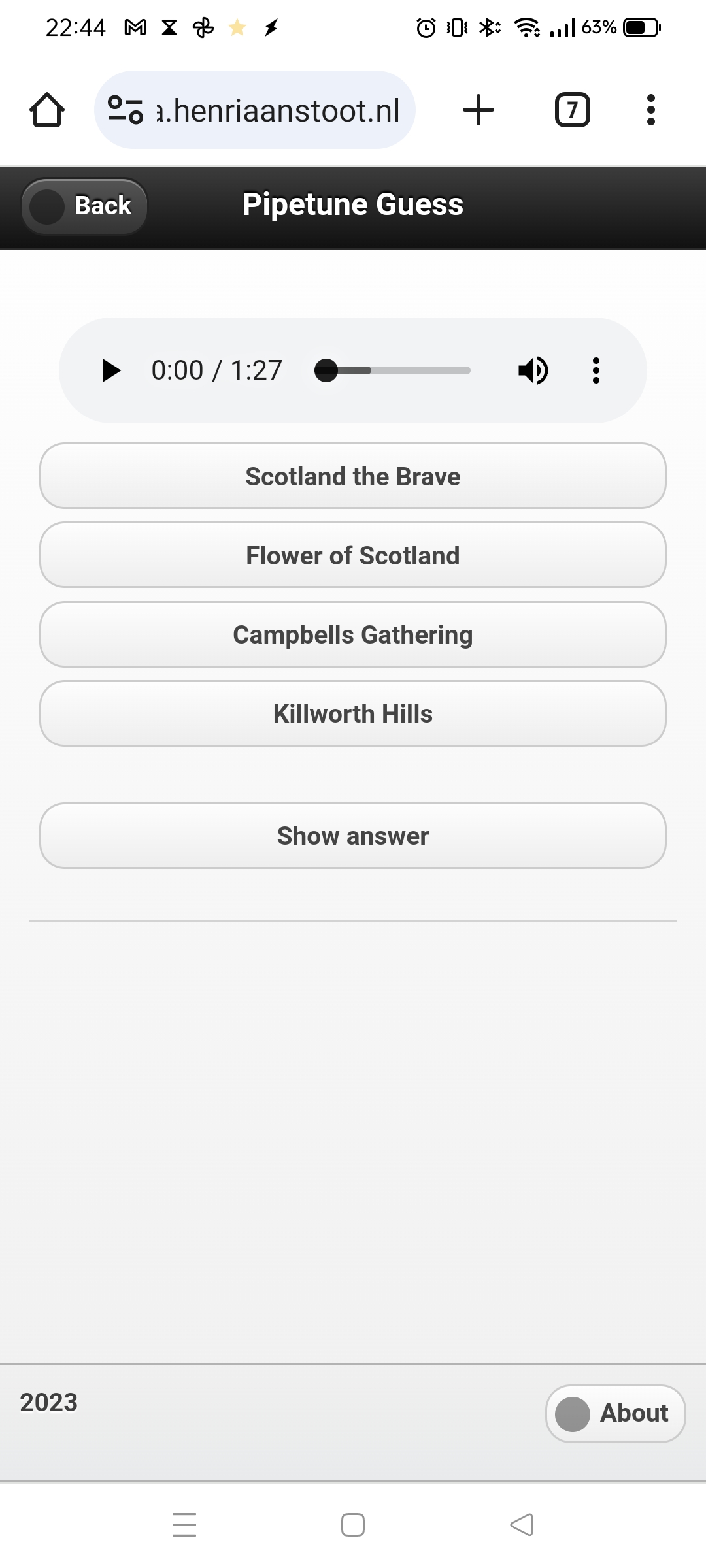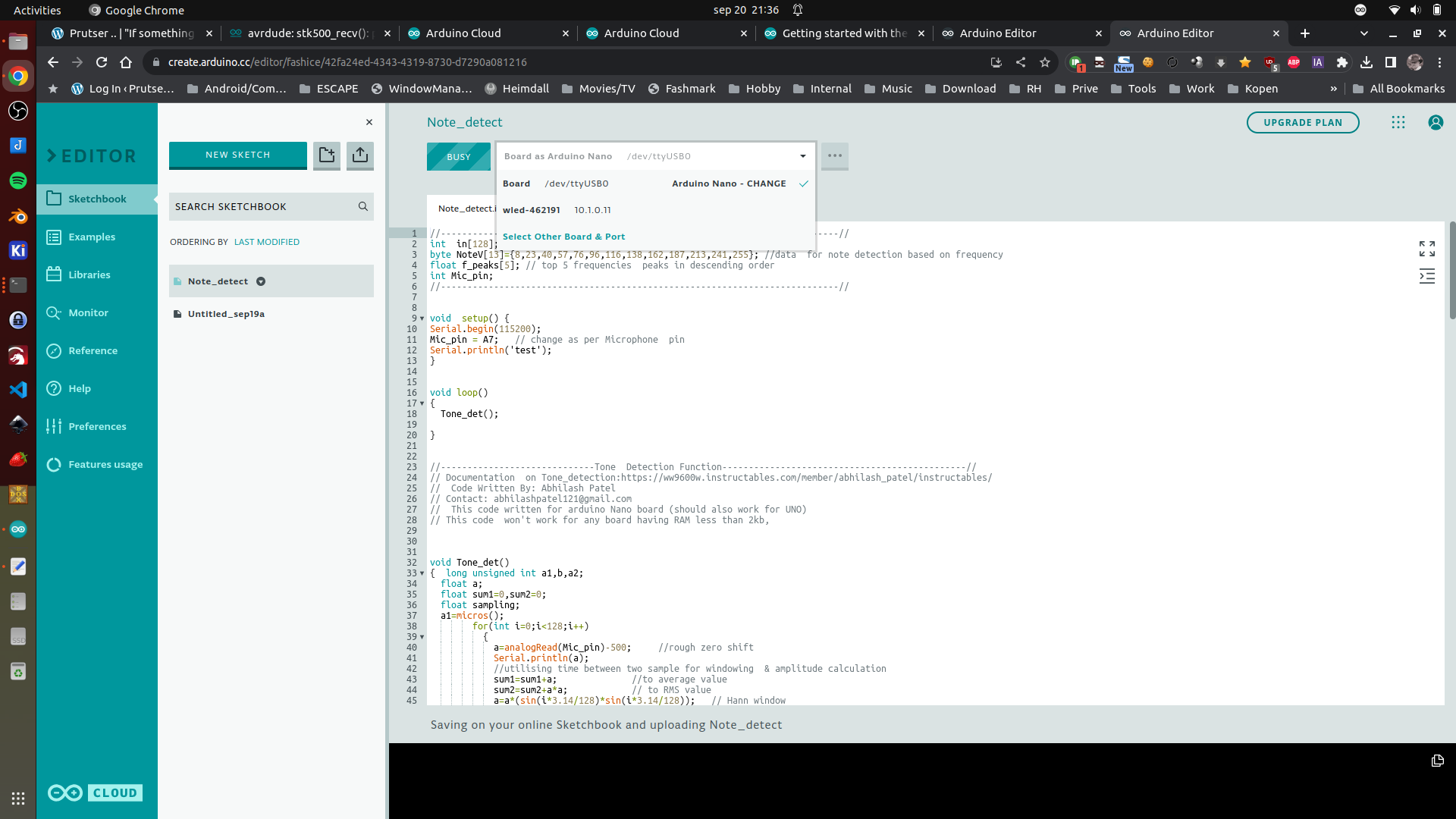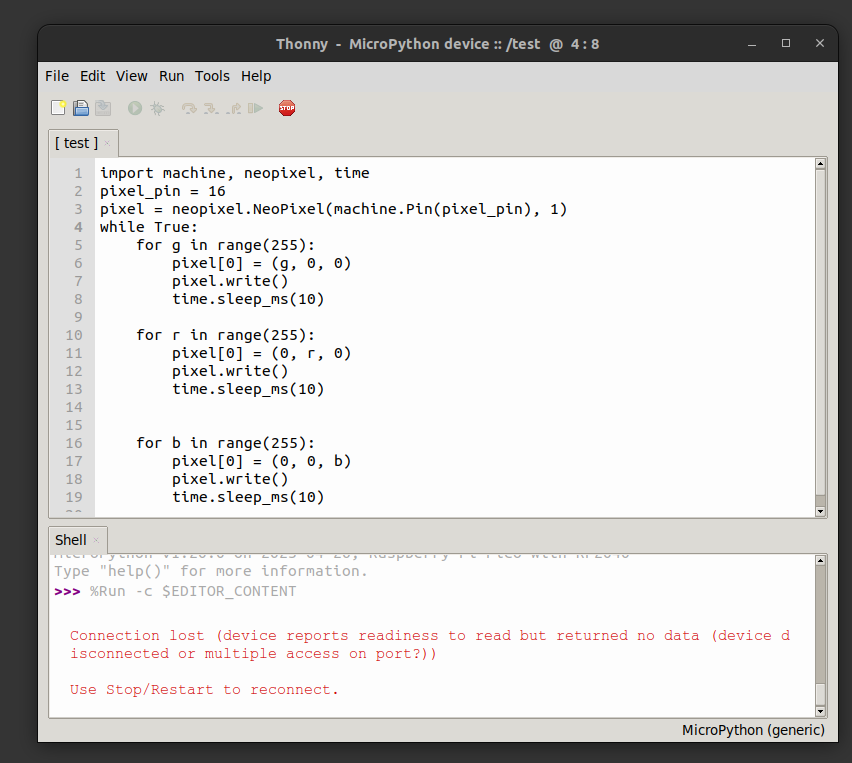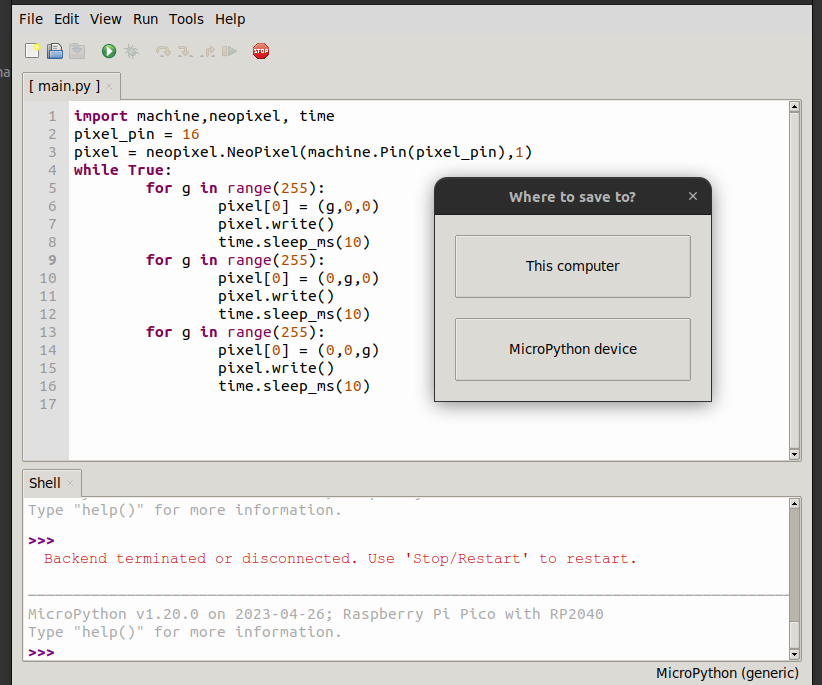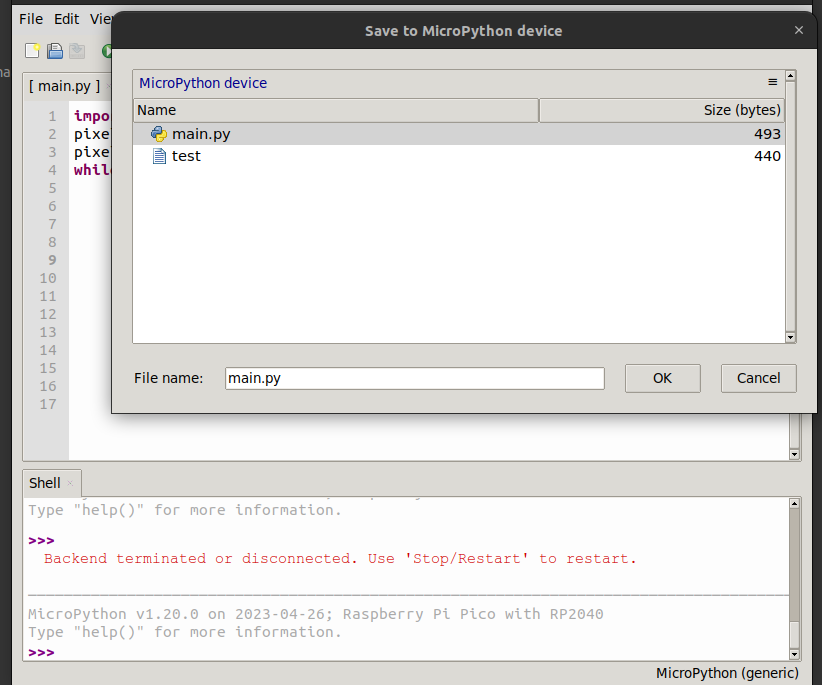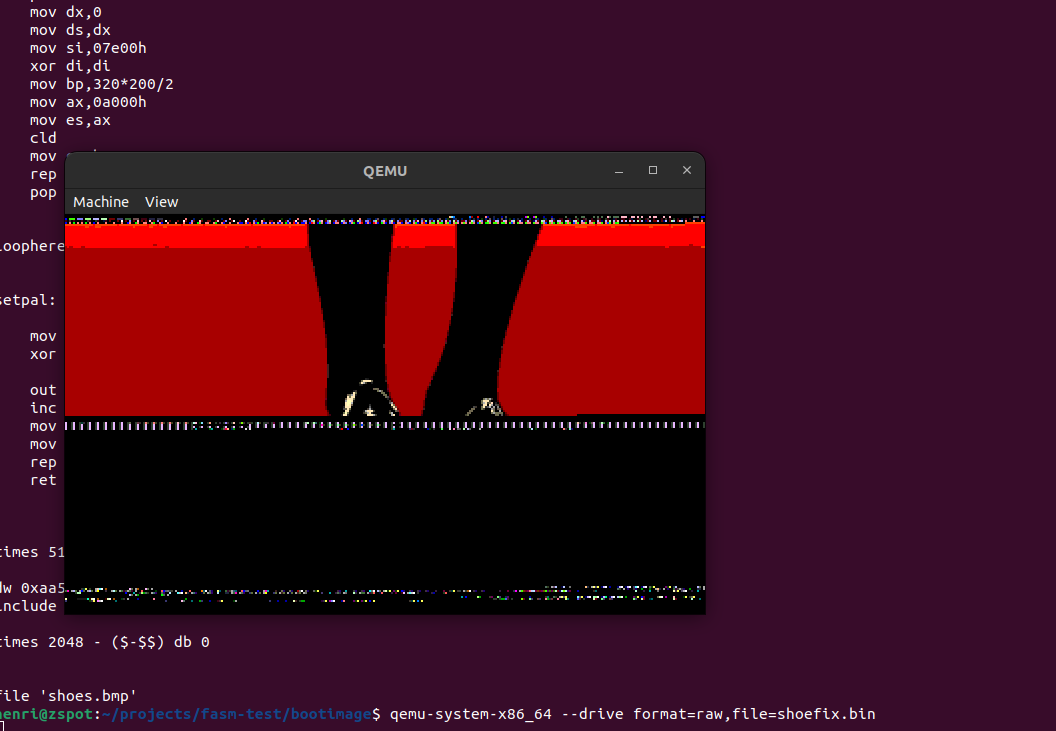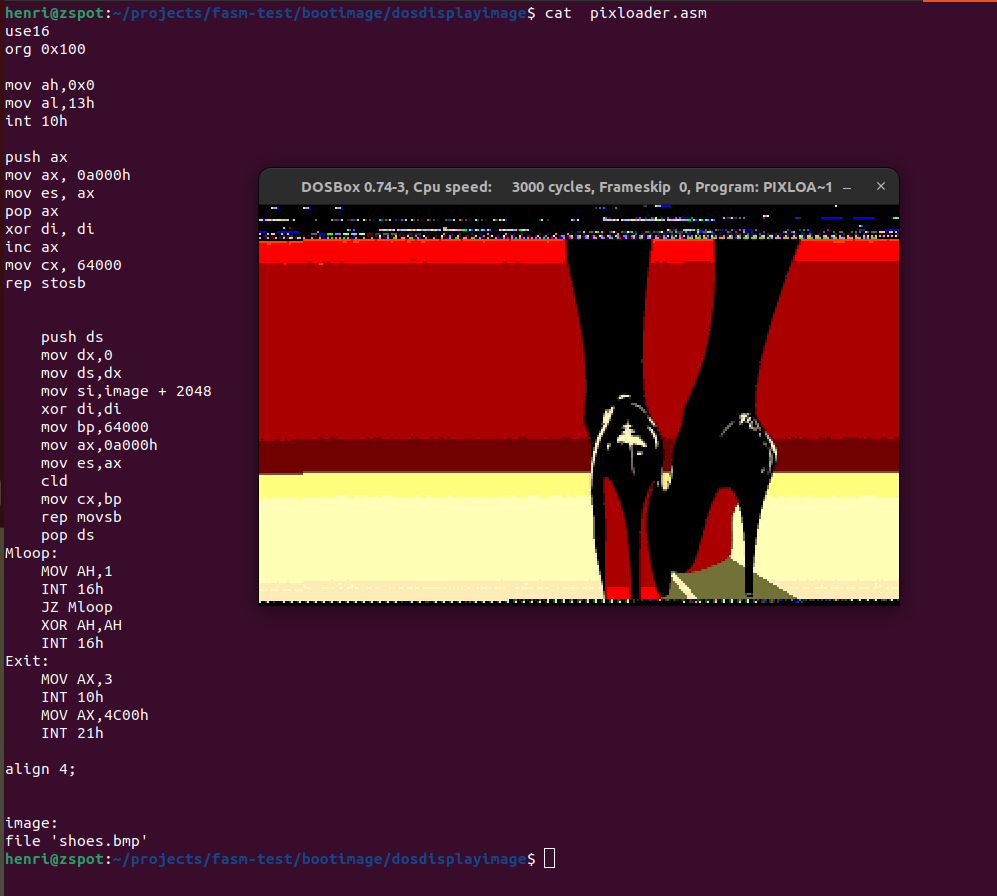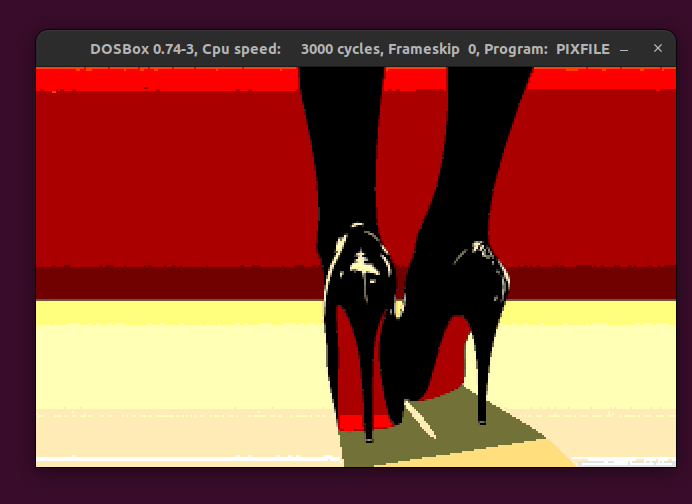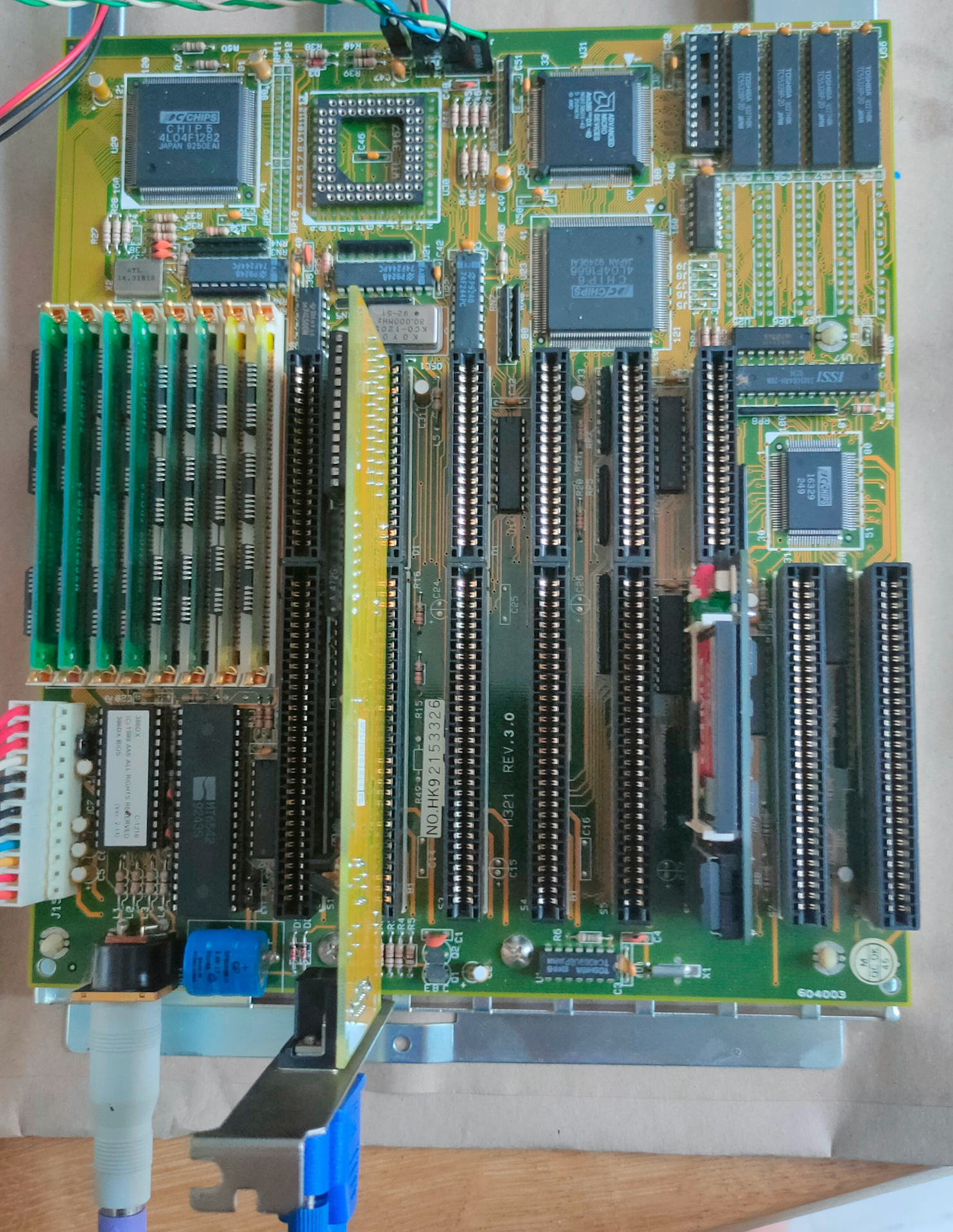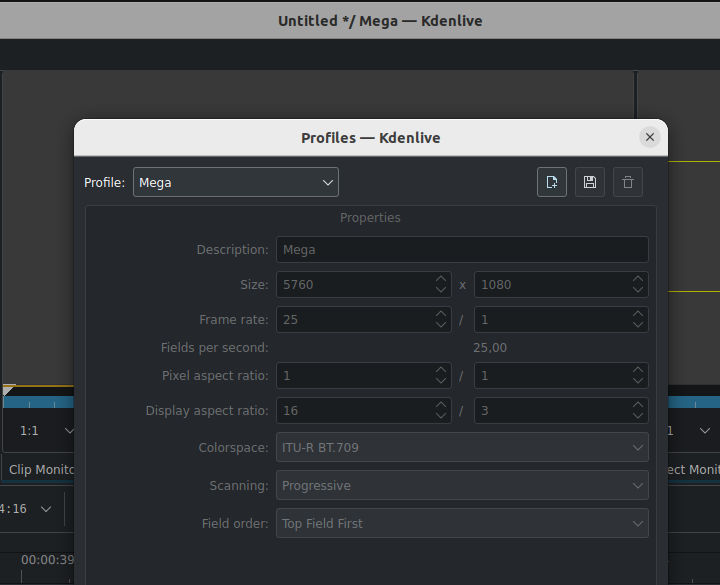This is a work in progress, below are my Lab notes.
I want to rewrite pieces we made for a demo, loading images and effects from a floppydisk bootloader.
Without looking at old code (which was written using Masm), I wanted to learn the steps using Fasm.
I started with a boot sector program, It should do the following.
- Set graphic mode, and start a trackloader
- Load sector 2 and 3 which contains the color palette for the image.
- Next sectors, cylinders and heads contain the raw image
I got it working, half that is.
In the past I used real disks, and now a virtual disk, maybe thats the difference?
First Code
use16
org 0x7c00
mov ah,0x0
mov al,0x13
int 10h
mov ax, 0a000h
mov es, ax
xor di, di
mov ax, 50
mov cx, 64000
rep stosb
loophere:
jmp loophere
times 510 - ($-$$) db 0
dw 0xaa55
Compiling and starting:
fasm mybootblock.asm
qemu-system-x86_64 --drive format=raw,file=mybootblock.bin
This works, it sets the graphical mode and clears the screen.
Second Code
Skipping the int 25h version
## Track read part
xor ax, ax ; DS = 0
mov ds, ax
cld
mov ah, 2h ; int13h function 2 track read
mov al, 2 ; number of tracks ( should be 2 for reading only palette)
mov ch, 0 ; from cylinder number 0
mov cl, 2 ; the sector number 2 - second sector (starts from 1, not 0)
mov dh, 0 ; head number 0
xor bx, bx ; BX = 0
mov es, bx ; ES = 0
mov bx, 7e00h ; Offset from above
int 13h
call setpal
## End part with setpalette routine
## appending palette.colors
## and a raw image
setpal:
mov dx,3c8h
xor al,al
mov di, ax
out dx,al
inc dx
mov cx,256*3
mov si,07e00h
rep outsb
ret
times 510 - ($-$$) db 0
dw 0xaa55
include 'palette.colors'
times 2048 - ($-$$) db 0
file 'image.raw'
Seems there is still a header on the RAW file, lets look at how I made this.
NOTE! .. Below converts an image with a STANDARD VGA palette, not a custom one as used above
Looking with ghex at the file I saw that there was a header 0x415 bytes large.
(Probably still palette colors in there)
dd if=shoes.bmp of=cutshoe.bmp bs=1 skip=1078 (0x415h + 3?)
worked for me
Loading the extra tracks didn’t work for me?!?!
But how could I define tracks/sectors and heads on a virtual floppy?
I tried to write sectors using debug.com
start dosbox
imgmount a: /tmp/floppy.img -t floppy
debug.com bootsector.bin
-r bx 01
-r cx 512
; set bx:cx for size
-w 100 0 0 1
; write from address 100, drive 0 (a), sector 0, number of sectors
; testing
-l 100 0 0 1
;load sector to addr 100 drive 0 sector 0 number of sectors
This used to work with real disks on a real machine, not in dosbox ?!?!
my way to create a disk in linux
dd if=bootblock.bin of=disk1.img bs=512 count=1 seek=0
dd if=palette.col of=disk1.img bs=512 count=1 seek=1 # or 2?
dd if=shoes.raw of=disk1.img bs=512 count=10000 seek=17
It looks like I can’t read futher than 18 sectors on a virtual floppy.
What next? Head=1? Cylinder=1?
Below the info from a floppy image before altering.
DOS/MBR boot sector, code offset 0x3c+2, OEM-ID “MSDOS5.0”, root entries 224, sectors 2880 (volumes <=32 MB), sectors/FAT 9, sectors/track 18, serial number 0x1c2a0d0f, unlabeled, FAT (12 bit), followed by FAT
Appending the RAW to a executable gave me problems to.
(Without making a bootdisk)
Above and below weird data. Appending the data to the executable needs some work also.
At least for today let me display this image correctly 🙂
use16
org 0x100
; set mode 320x200 256 colors palette
mov ah,0x0
mov al,13h
int 10h
; clear screen routine, not really needed
clearscreen:
push ax
mov ax, 0a000h
mov es, ax
pop ax
xor di, di
inc ax
mov cx, 64000 ; 320x200
rep stosb
; call file loader
call Loadfile
; after displaying the image or displaying an error, wait for keypress to exit
waitforkeyloop:
MOV AH,1
INT 16h
JZ waitforkeyloop
XOR AH,AH
INT 16h
Exit:
MOV AX,3 ; default text mode 3
INT 10h
MOV AX,4C00h ; exit to dos (terminate process)
INT 21h
Loadfile:
MOV DX,filename
MOV AX,3D00h ; open filehandle
INT 21h
JC Err1
MOV BX,AX ; filehandle
MOV CX,0FFFFh ; size
mov dx,0a000h ; destination 0000:a000h - Screen memory
mov ds,dx
MOV DX,0
MOV AH,3Fh ; read from file
INT 21h
JC Err1
MOV AH,3Eh ; close filehandle
INT 21h
RET
; print error
Err1:
push cs ; make ds same as cs
pop ds
MOV DX,TxtErr1 ; error
MOV AH,09h
INT 21h
RET
filename DB "shoes.bmp",0
TxtErr1 DB "shoes.bmp not found!",7,10,13,"$"
Tomorrow .. back to the track loader
